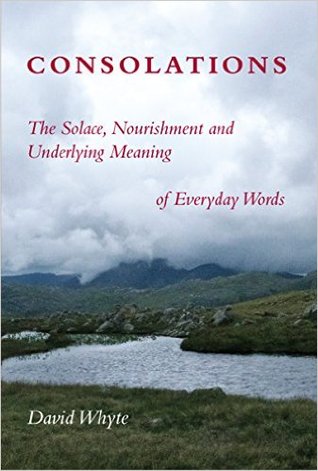Review: David Whyte’s “Consolations”
by Miles Raymer

Consolations are words, strung together utterances, that explore experience but allow the essential mystery of existence to remain hidden. They come to us, through air, through ink, offering an embrace just comforting enough to help us bear the painful and frightful realization that we are alone, so starkly alone, that the words dancing through our minds are merely a forever once and a never twice.
Consolations are the kind, gentle whispers of a compassionate killer. They exhale death, inviting us to inhale the coming rot, so sickly sweet yet somehow tempting to those exhausted by life’s endless asks. Through ending our incessant worrying about things to come, to do, to be, consolations cage us in the flowering of our youth, watch patiently as we age and achieve, and wait in our shadow to welcome us in the moment of our ultimate up-giving.
Consolations teach us to linger in the meadow of our momentary happiness, to touch ground and perk our ears to the swallow’s song and the dogwood’s sway, passing with closed eyes back to native darkness, then exploding again into the world when light rushes in. The enforcement of nature’s unbreakable laws breaks us, but consolations give us the grace to break beautifully and cleanly, revealing an inner landscape previously concealed and brimming with new life.
Consolations cry out against the great nothing, laughing and weeping together, dropping down and rising up until every space is bursting with presence. Placed properly, properly in-place, we discover our insignificance as our greatest source of strength. We see and delight in others around us, everywhere and everywhen, relinquishing grandiosity so that we may take up our inimitable instrument––just one player in the mighty orchestra that tunes, excites, and lulls us all to sleep. The supine self is not an admission of defeat, but a silent conversation with our mortal bower, the bed that calms and connects us, the place where rest is final and unending.
Rating: 10/10
I might be a little confused. is this a poem review of a book about poems?
Haha, that’s pretty close to what I was going for! It’s actually an imitation of the essays in Whyte’s books. They’re all very short essays that are about a single word (e.g. Friendship, Besieged, Vulnerability, etc.). So I decided to write my review as a short essay about the word “Consolations”. Does that makes sense?